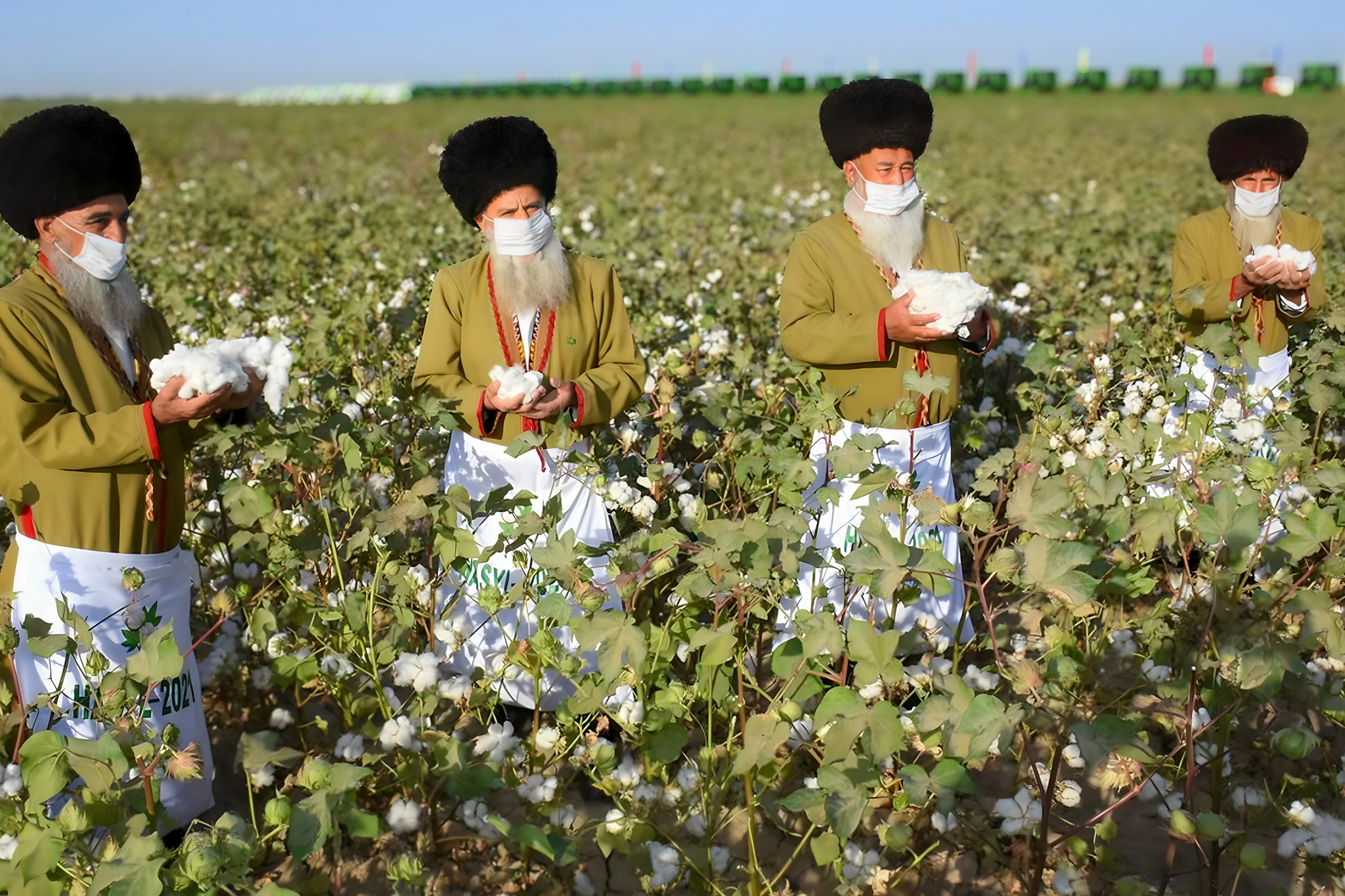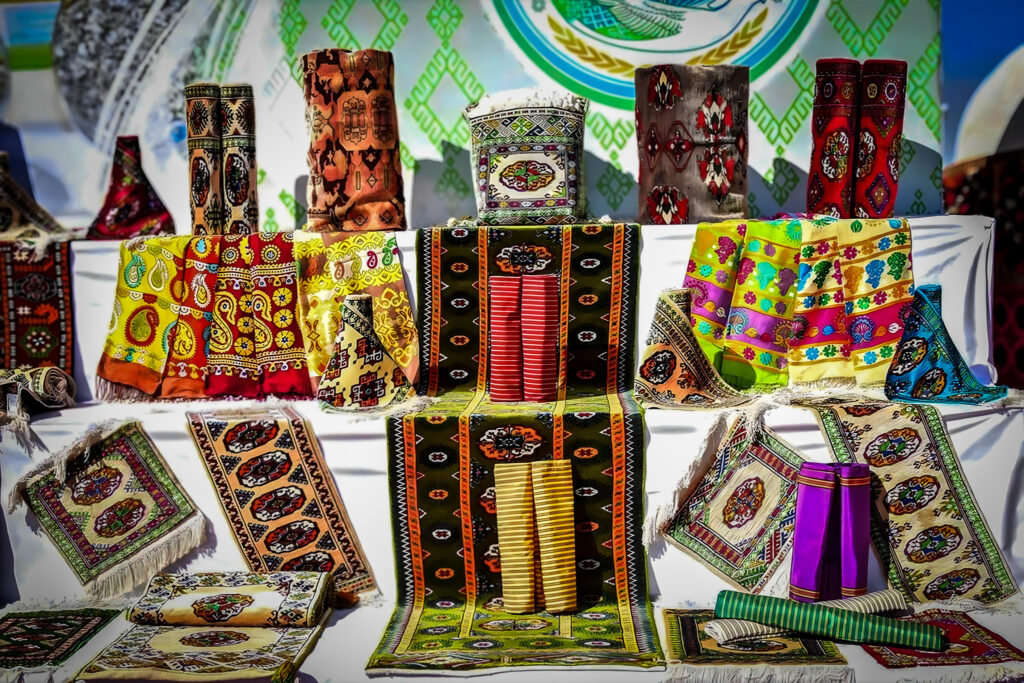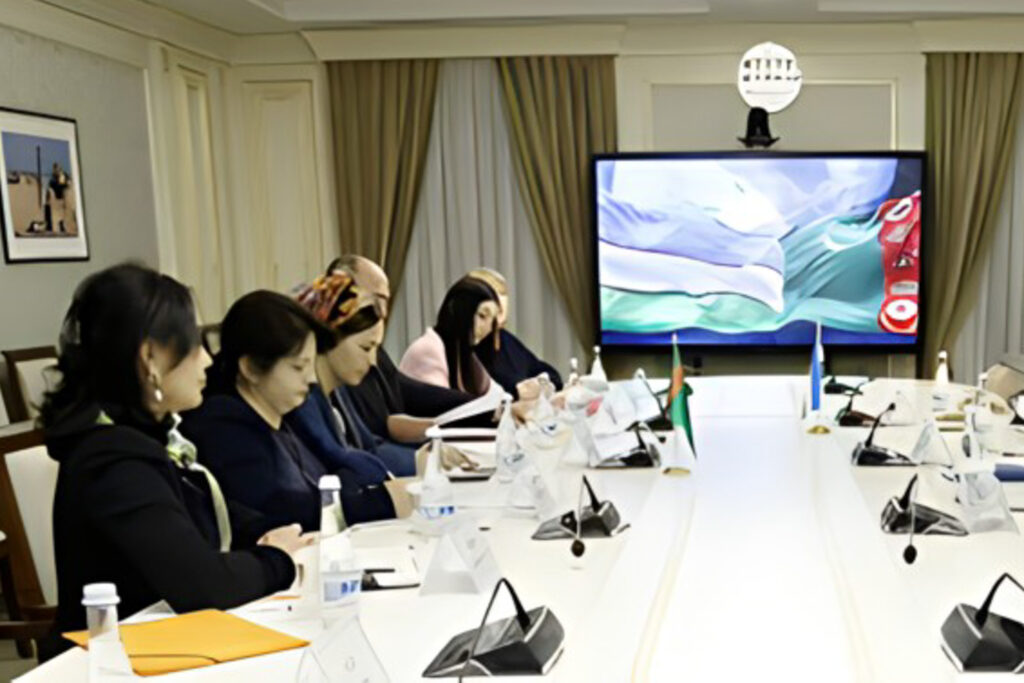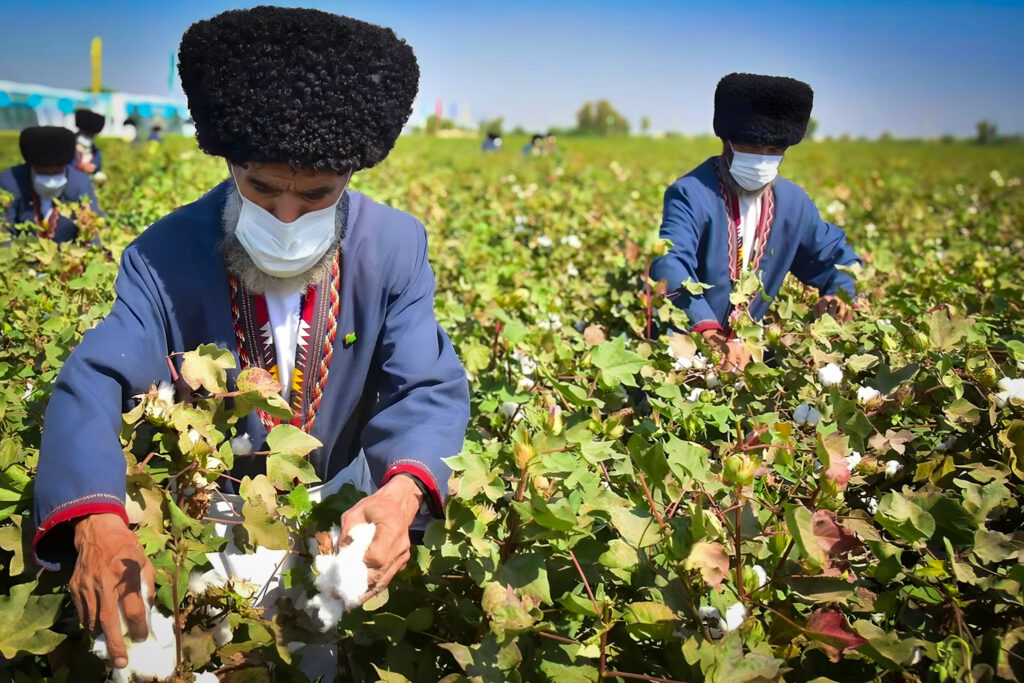
Turkmenistan bans child labor on cotton farms with support from USAID and partners
In July 2024, Turkmenistan’s minister of Labor and Social Protection adopted an order prohibiting children younger than 18 from working in cotton harvesting, officially adding “cotton picker” and “cotton grower” to the list of banned forms of child labor in the Central Asian country. The decree, which is now registered with the Ministry of Justice, is in line with a recent roadmap of cooperation signed by the Turkmenistan government and the International Labour Organization.
Turkmenistan is the world’s 10th largest cotton producer, and cotton is one of the country’s primary agricultural exports. The cotton industry supports a large portion of the rural population, providing jobs in farming, processing and textiles, and is tightly controlled by the government, which sets quotas for farmers and oversees export.
“The adoption of the child labor ban is a landmark achievement, breaking a decades-old reliance on free child labor in the cotton industry,” said Nodira Saidkarimova, chief of party of Safe Migration in Central Asia (SMICA), a USAID project implemented by Winrock International in Turkmenistan, Kazakhstan, Uzbekistan and the Kyrgyz Republic. “It marks a critical shift toward aligning Turkmenistan’s labor practices with global human rights standards, enhancing its international reputation.”

The USAID SMICA project, which began in 2019, works with local and government partners to strengthen mutual accountability of governments, nongovernmental organizations, and the private sector to prevent trafficking in persons, protect trafficking survivors, promote safe migration and prevent labor exploitation in the four Central Asian countries. With this reform, Turkmenistan signaled its commitment to eradicating forced labor and protecting children’s rights. The move is also expected to make Turkmen cotton products more competitive in the global market.
Beginning in 2020, the USAID SMICA project and local partner organizations have advocated for fair labor standards in Turkmenistan by conducting webinars, workshops and seminars with Turkmen government and private sector stakeholders. The approach included leveraging regional experiences and practices and connecting government officials from different Central Asian countries to learn and exchange ideas and knowledge.
In March 2024, for example, SMICA organized a study visit for Turkmen government officials to Uzbekistan, showcasing strategies used by the Uzbek government to eliminate systemic forced and child labor — a step recognized by the advocacy organization, Cotton Campaign, when it lifted its global boycott of Uzbek cotton in March 2022 after years of activism and reforms by the Uzbek government.
Following the Uzbekistan visit, SMICA held a briefing in May 2024, in Ashgabat, Turkmenistan, with Turkmen officials to discuss the findings and share a detailed report on Uzbekistan’s processes and legislation. This report was in response to an earlier directive from the Turkmenistan’s president to establish a National Counter-Trafficking in Persons Task Force. USAID’s longstanding advocacy for fair labor practices and the prohibition of forced labor influenced these developments, and the study visit in Uzbekistan prompted the Turkmen Ministry of Labor to draft a similar order reflecting the impact of international best practices on national policy changes.

Further reforms, including the introduction of fair recruitment practices, remediation mechanisms and collective bargaining rights, are expected to follow, further aligning Turkmenistan’s labor practices with international standards.
The ban, long in the making, empowers local law enforcement to more effectively prevent and prosecute those who exploit child labor in the cotton industry, holding employers accountable, and putting an end to the practice of utilizing child labor to meet state-imposed production quotas.
The Ministry of Justice and the Prosecutor General’s Office are responsible for enforcing child labor prohibitions, with authority to impose penalties, including fines or suspension of an employer’s operations for up to three months. However, the sanctions were not proportionate to penalties for other serious crimes, and loopholes were exploited. For example, the law prohibited students from working during school or study hours but permitted them to work in “voluntary” collective production practices in their free time.
One of the first USAID SMICA project activities to address these and other problems in Turkmenistan was an August 2020 webinar focused on eradicating forced labor and human trafficking under the U.N.’s Sustainable Development Goal Target 8.7. Representatives of the Ministry of Foreign Affairs, Ministry of Labor and Social Protection, the Institute of Statehood, Democracy and Office of the Ombudsman attended.
At that event, the then-U.S. ambassador to Turkmenistan, Matthew S. Klimow, said: “Turkmenistan’s desire to increase exports and enter international markets necessitates raising the level of awareness among lawmakers and trade representatives on international standards to ensure and enforce effective protection of workers’ rights and prevent forced labor.” He added: “I am convinced that by working hand in hand with the government of Turkmenistan, the UNODC, the International Labor Organization, U.N. Office of High Commissioner on Human Rights Regional Office in Bishkek and other partners, together, we are contributing to steady and equitable economic growth in Turkmenistan and in the region while safeguarding the rights of migrants.”

During the webinar, speakers from the ILO, the Council of Europe, the U.N. Office of the High Commissioner on Human Rights regional office in Bishkek and their Turkmen colleagues considered how to accelerate and expand activities to achieve SDG Target 8.7. Participants deliberated on necessary national policies and their effective implementation, shared international and regional experiences and practices, and provided examples of successful and innovative approaches to ending forced labor and human trafficking regionally.
The USAID SMICA project conducted additional webinars jointly with the Ombudsman of Turkmenistan on international norms banning all types of child and/or forced labor at the cotton fields. The project engaged directly with the municipal bodies responsible for seasonal recruitment of for cotton harvesting in all five regions of Turkmenistan.
These efforts laid the groundwork for SMICA to organize the March 2024 visit for Turkmen government officials to Uzbekistan where Uzbek colleagues showcased the methods used in their country to effectively eliminate forced and child labor.
The USAID SMICA activity will continue to work with Turkmenistan government stakeholders, local partners including civil society organizations, and other regional and international stakeholders to assist the government of Turkmenistan to ensure that its recent ministerial order is fully implemented.
Related Projects

